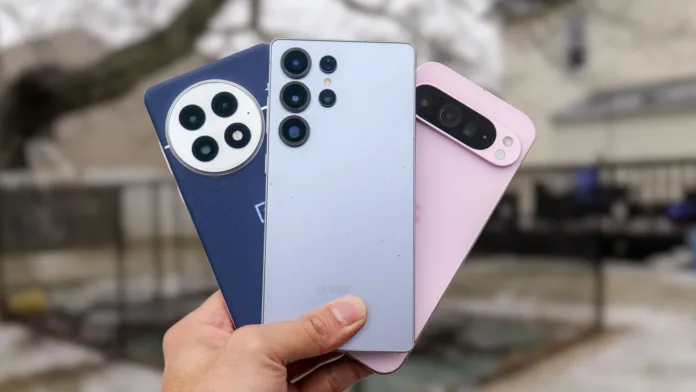The Article Tells The Story of:
- Smartphones Act Like Seismometers: Google used motion sensors in Android phones across 98 countries to detect over 11,000 earthquakes.
- Faster, Cheaper Earthquake Alerts: The system rivaled conventional seismic tools and sent warnings to millions in real time.
- Turkey Quakes Reveal Gaps: Google’s alerts fell short during deadly 2023 quakes, but improved algorithms could have reached 10M people.
- Privacy and Transparency Still a Concern: Scientists praise the system but want more access to its data and algorithms.
Table of Contents
Google Turns Android Phones Into a Global Earthquake Warning System
Squaredtech.co has learned that Google has used over two billion Android phones to quietly create a global earthquake detection system—one that works without any traditional seismic equipment. Instead of relying on government seismometers, this system uses the motion sensors already built into smartphones.
The result? A tech-driven network that has detected over 11,000 earthquakes across 98 countries from 2021 to 2024. Google’s Android Earthquake Alerts system works by gathering motion data from phones, analyzing those signals, and then sending alerts in real time—sometimes faster than official government warnings.
Read More About Our Article of Google’s “Desktop View” Turns Android Phones Into Pocket PCs Published on May 12th, 2025 SquaredTech
What’s remarkable here is scale. The power doesn’t lie in any one phone’s sensor—it comes from billions of them working together. Google’s algorithms examine shared motion across regions to pinpoint when and where an earthquake starts. This is more than a clever use of hardware; it’s a completely new approach to earthquake detection that challenges the way traditional seismology works.
This isn’t just theory. A peer-reviewed study in Science now shows that Google’s system performs comparably to dedicated seismometers—devices that normally cost millions and require years to install. The paper marks the first full performance review of Google’s system since it launched three years ago.
Millions Now Get Warnings They Never Had Before
Before Google rolled out this feature, many regions had no access to early warning systems. But by tapping into Android’s massive global footprint, Google delivered alerts to millions of users who were previously unprotected.
In just three years, the number of people receiving these alerts increased tenfold. The system’s reach is massive: whether you’re in a major city or a rural village, your phone could warn you seconds before a quake strikes.
For Squaredtech readers, this innovation highlights how consumer tech can serve real-time public safety at global scale.
The earthquake alert doesn’t require a special app—Android phones automatically participate unless users opt out. The alerts appear as full-screen messages telling people to “Drop, Cover, and Hold On” if shaking is imminent.
Still, Google says its system is not meant to replace national agencies. It’s more like a backup—a supplemental alert that adds another layer of protection when seconds matter most.
Read More About Our Article of Android Phones to Auto-Reboot After 3 Days—Here’s the Real Reason Behind the Update Published on April 16th, 2025 SquaredTech
The 2023 Turkey Quakes Show the System’s Limits
But it’s not perfect.
In February 2023, two deadly earthquakes struck Turkey. Google’s system sent alerts to 4.5 million users, but scientists say those warnings should have been stronger and more urgent.
This failure highlighted gaps in the alert algorithms, especially for high-magnitude events. When Google’s team revisited the Turkey data with newer models, they found that a better analysis would have triggered “TakeAction” alerts—stronger warnings that could have reached 10 million devices.
Seismologist Harold Tobin from the University of Washington told Nature that this update shows progress. “They’ve clearly worked to improve the system since 2023,” he said.
For Squaredtech, this raises key questions: Can we rely on smartphone-based alerts when lives are at stake? What happens if the algorithm gets it wrong?
Google seems aware of the stakes. Engineers continue refining the models to handle rare but deadly quakes better, and they stress that users should not rely solely on these alerts during major disasters.
Scientists Want More Transparency—and Access
While many experts praise Google’s Android Earthquake Alerts system as a breakthrough, they also say the tech giant needs to open it up.
Because the algorithms are proprietary and the data private, external researchers can’t fully audit how the system works. Seismologists like Allen Husker at Caltech say that public confidence would rise if Google allowed more access to its inner workings.
“Most countries don’t have any earthquake alert system,” Husker told Nature. “This is a powerful supplement, but independent scientists need to see how it operates.”
Google describes its system as a helpful safety net—not a replacement for official warnings—but critics want more transparency. Especially for governments or disaster agencies looking to integrate it into their response plans, lack of access to source data makes it hard to evaluate risks and performance.
Still, the impact is hard to ignore.
Richard Allen, a seismologist at UC Berkeley and visiting faculty member at Google, says the company published the study in Science to support open dialogue. “We hope the seismology community sees this as an opportunity, not a threat,” he said.
Final Thoughts from Squaredtech
At Squaredtech.co, we’re watching how Google’s use of Android phones to detect earthquakes is changing the rules. Turning billions of personal devices into a decentralized safety net is a powerful idea—and it’s working.
But it comes with responsibility. As with all AI and sensor-driven tech, transparency, accountability, and clear data practices matter.
Google’s Android Earthquake Alerts system shows what’s possible when software, hardware, and scale come together. But as the Turkey quake revealed, it’s still evolving—and users, governments, and scientists alike need to stay informed and cautious.
If you’re using an Android phone, you’re already part of this global system. Just remember: it’s a tool, not a guarantee.
Stay Updated: Tech News


